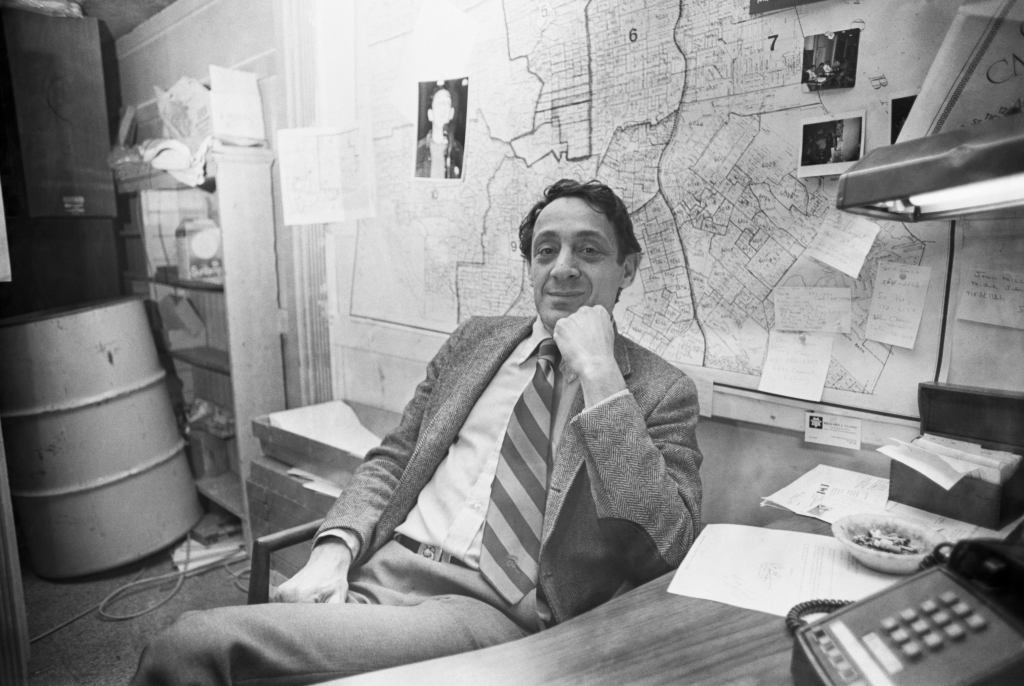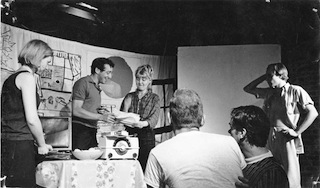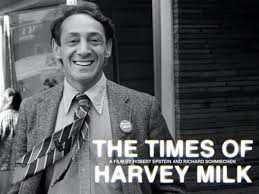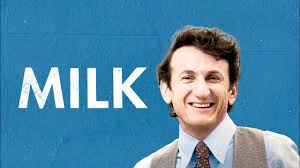It’s more than likely that I would have done a post on Harvey Milk (1930-1978) eventually anyway, but a few weeks ago I was reminded of something that pushed it to the top of the agenda: he had downtown theatre street cred.
Those who know the arc of Milk’s life know that he started out as a pretty square guy. To me that’s always been the key to his character and one of the most fascinating parts of his story. He was a person who evolved, and one who was capable of bridging some pretty stark cultural divisions. This is what makes the loss of him so huge. A native Long Islander, he served in the Navy during the Korean War, making Lieutenant before being discharged on account of his identity. Then he taught school, and later worked in various jobs in the financial sector. He even campaigned for Barry Goldwater in 1964. In a slightly different timeline he could easily have been one of Ronald Reagan’s Log Cabin Republicans.
And yet, in the early days, he was also involved in working with Tom O’Horgan at La Mama (see great artifacts here). In 1965 he acted in the plays …And Now the Weather and The New OP-ra. He was also in Changes (1968) and several other plays. He became a production associate on Hair, and remained with the production as it went to Broadway, and then on tour to San Francisco, which is how he happened to move there (at the very same time gay people were flocking there from all over the country). There he opened a camera store and ran for public office several times, finally winning a seat on the city’s board of supervisors (the equivalent of the city council) in 1978, becoming one of the first openly gay elected officials in the United States. He worked for equal rights for people of all sexual orientations, and legalization of marijuana, and formed alliances with organized labor.
The triumph was to last less than a year. On November 27, 1978, Milk and Mayor George Moscone were assassinated by fellow supervisor Dan White, who had recently resigned his post in reaction to decisions by the board, including passing Milk’s anti-discrimination bill. A conservative Democrat affiliated with the police and fire departments, White had recently thought better of his decision and appealed to the Mayor to be reinstated. But, under the influence of Milk and others, Moscone chose not to accept White’s plea to come back. White snuck into city hall through a basement window and fatally shot both men. He turned himself in immediately afterwards, and later mounted the controversial “Twinkie Defense”, his lawyers arguing that he’d committed the crimes because he was strung out on junk food. This was the same guy who would have had zero pity for defendants who’d committed similar crimes while on actual drugs, I might add. Isn’t it priceless how it’s the “law and order” creep who goes berserk and explodes in a shooting rampage?
I certainly remember the Twinkie Defense making the news (I was 13 at the time of these events) but really knew nothing about Milk until years later when I saw Rob Epstein’s 1984 documentary The Times of Harvey Milk, based on Randy Shilts’ 1982 biography The Mayor of Castro Street, and narrated by Harvey Fierstein. That movie was a revelation to me, for it seemed clear that this stupid tragedy probably set the cause of LGBTQ rights back by years. True leaders are both rare and indispensable. Milk had the charisma, the persuasive power, the political skill, and the crusading fervor to get things done. People listened to him. He changed minds. Among a million other things, it’s easy to imagine him leading the charge to get a federal response to the AIDS crisis, which hit just a few years after he was killed. Would he have made a difference? We’ll never know, but if he couldn’t have done it, no one could.
The tragic trajectory of Milk’s life and death naturally lent itself to dramatization. My old MacDowell cohort Stewart Wallace composed the opera Harvey Milk, which premiered in 1995.
In 2008, the story was adapted into the bio-pic Milk, directed by Gus Van Sant. Sean Penn won a well-deserved Oscar for his performance in the title role, with Josh Brolin also well-cast as White, and Victor Garber as Moscone.
There’s also Andrew Lippa’s 2014 oratorio I Am Harvey Milk. There is a great interview with the composer about it here.
The SFO Museum has a terrific online exhibit of photos from Milk’s life. It’s worth checking out; my favorite in the collection shows him outside the theatre where Hair is playing, during his hairy hippie phase. Find it here.
A life to be celebrated; a loss to be mourned. Harvey Milk had a much greater role to play on the world stage. His premature exit hurt us all.





You must be logged in to post a comment.